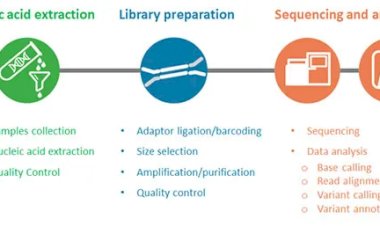Understanding Intellectual Property Rights for Freelancers and Small Businesses

Understanding Intellectual Property Rights for Freelancers and Small Businesses: Key Takeaways
In the fast-paced world of freelancing and small businesses, protecting your intellectual property rights (IPR) is crucial to securing your creative work, products, and brand. Whether you're a designer, writer, developer, or entrepreneur, having a basic understanding of IPR can help you navigate contracts, negotiate ownership, and secure the rights to your own work.
Why Intellectual Property Matters for Freelancers and Small Businesses
For freelancers and small business owners, intellectual property isn’t just a legal concept—it's a valuable business asset. From logos and branded content to software and proprietary designs, IP represents the unique value you bring to the market. Misunderstanding IP can lead to unintentional rights violations, loss of ownership, or missed revenue from licensing opportunities. Knowing your rights and responsibilities as a creator helps you protect your work and capitalize on your creative assets.
What Is Intellectual Property?
Intellectual property is a broad legal term covering various types of intangible assets that are the product of creativity and innovation. For freelancers and small business owners, there are four primary types of IP to consider:
- Copyright: Protects original works like written content, designs, photos, software, and more. Copyright grants the creator exclusive rights to reproduce, distribute, and display the work.
- Trademarks: Protects names, logos, slogans, and symbols that distinguish your business or product. Trademarks are crucial for brand identity.
- Patents: Protect inventions, granting the patent holder exclusive rights to use and sell the invention.
- Trade Secrets: Protect confidential information like formulas, processes, and methods that provide a competitive edge.
By understanding these categories, freelancers and small businesses can better identify and manage the IP that applies to their work.
Key IP Takeaways for Freelancers and Small Business Owners
Here are some essential points to help freelancers and small business owners protect their intellectual property and navigate IP-related issues in their business relationships.
1. Establish Ownership in Contracts
When working with clients or collaborators, clearly outline IP ownership in contracts. Who owns the work after completion? Is it a “work-for-hire” arrangement where the client holds the IP, or do you retain ownership while granting them usage rights?
Many freelancers mistakenly assume that they retain IP ownership unless explicitly stated otherwise. However, in a “work-for-hire” situation, the client often becomes the IP owner by default. Clearly stating terms around ownership and licensing in your contracts will help avoid future disputes.
2. Understand Licensing Options
Licensing is a flexible way for freelancers to retain ownership of their work while allowing clients to use it under specific terms. When you license your IP, you provide a client with permission to use your work in defined ways, such as for a set period or in specific regions.
Licenses can be exclusive (only the client can use the work) or non-exclusive (you retain the right to license the work to multiple clients). For example, photographers and graphic designers can offer non-exclusive licenses for their images, allowing them to resell the same work to multiple clients while maximizing their earnings.
3. Protect Your Brand with Trademarks
For small businesses, a unique brand identity is essential. Securing a trademark for your business name, logo, or slogan can prevent competitors from using similar branding and confusing your customers. Trademarks also add credibility to your brand and can increase the overall value of your business.
If you’re a freelancer using a unique business name or a particular slogan in your marketing, a trademark can safeguard your brand against unauthorized use.
4. Monitor and Enforce Your IP Rights
Creating IP is one part of the equation—protecting it requires ongoing vigilance. Monitoring your IP ensures no one else is using your work without permission. For example, you can set up alerts to notify you if your copyrighted images, articles, or designs appear online without authorization. Several online tools, like Google Alerts or reverse image search, can help you track unauthorized use.
If you discover a violation, consider sending a cease-and-desist letter as a first step. Often, a simple notification is enough to resolve the issue, but understanding your legal recourse options if unauthorized use continues is critical.
5. Secure Confidential Information with NDAs
For freelancers and small businesses dealing with sensitive or proprietary information, such as trade secrets or client lists, using Non-Disclosure Agreements (NDAs) can help secure your competitive edge. An NDA legally binds the other party to keep specific information confidential, which is essential when sharing details about your processes, designs, or business strategies.
NDAs protect not only your work but also your relationships with clients, partners, and suppliers, especially if your business relies on unique or specialized knowledge.
Taking the Next Step: A Beginner-Friendly IP Course for Freelancers and Small Businesses
If you’re ready to dive deeper into IP and learn how to protect your work and business effectively, consider taking a course designed specifically for freelancers and small business owners. An introductory IP course can offer step-by-step guidance on:
- Identifying your IP assets and understanding their value
- Drafting contracts and licensing agreements with IP ownership in mind
- Using NDAs and other legal tools to protect confidential information
- Navigating IP-related disputes and knowing when to seek legal help
Accessible and beginner-friendly, these courses are tailored for creatives, freelancers, and entrepreneurs who may not have a legal background but want to take control of their IP and protect their business.
Get Started Today with IBRI’s Course
IBRI’s course is an invaluable resource for freelancers and small business owners who want to understand and protect their IP. Whether you’re a designer, writer, consultant, or business owner, mastering the essentials of IP can provide you with peace of mind, financial opportunities, and the confidence to share and promote your work.
Secure your work, navigate contracts with confidence, and empower your business with essential IP knowledge. Enroll in IBRI’s Intellectual Property course today and take control of your creative assets.
Ready to protect your intellectual property? Join IBRI's Course now and start building a safer, more profitable business future!
Final Thoughts
Intellectual property is a powerful asset for freelancers and small business owners. By understanding IP basics, you’re better equipped to protect your work, secure your brand, and build a sustainable business. As you move forward in your career, remember to revisit and update your IP knowledge to stay compliant and maximize the value of your creative assets.
Safeguard your work, navigate contracts with confidence, and take control of your business’s IP. Whether you're starting out or scaling up, a basic understanding of intellectual property can make a significant difference in your success and peace of mind.
#IPReducation #businesseducation #ibricourses #onlinecourse #entrepreneurtips #smallbusinesstips #freelancerlife #creativeentrepreneur #knowledgeispower #businessgrowth #legaltips

 Manju
Manju 



























